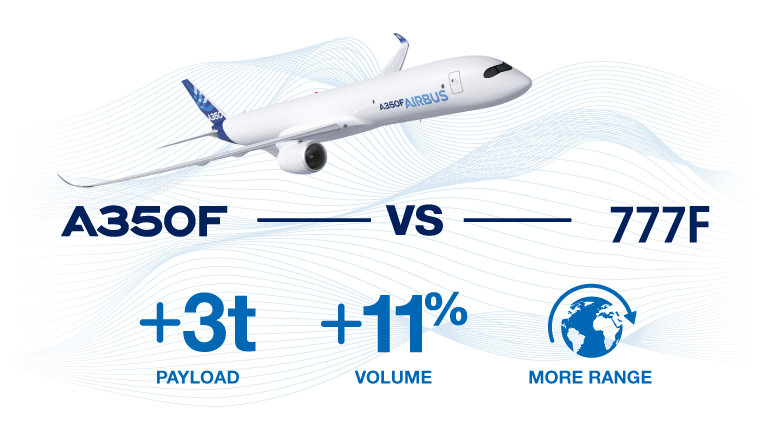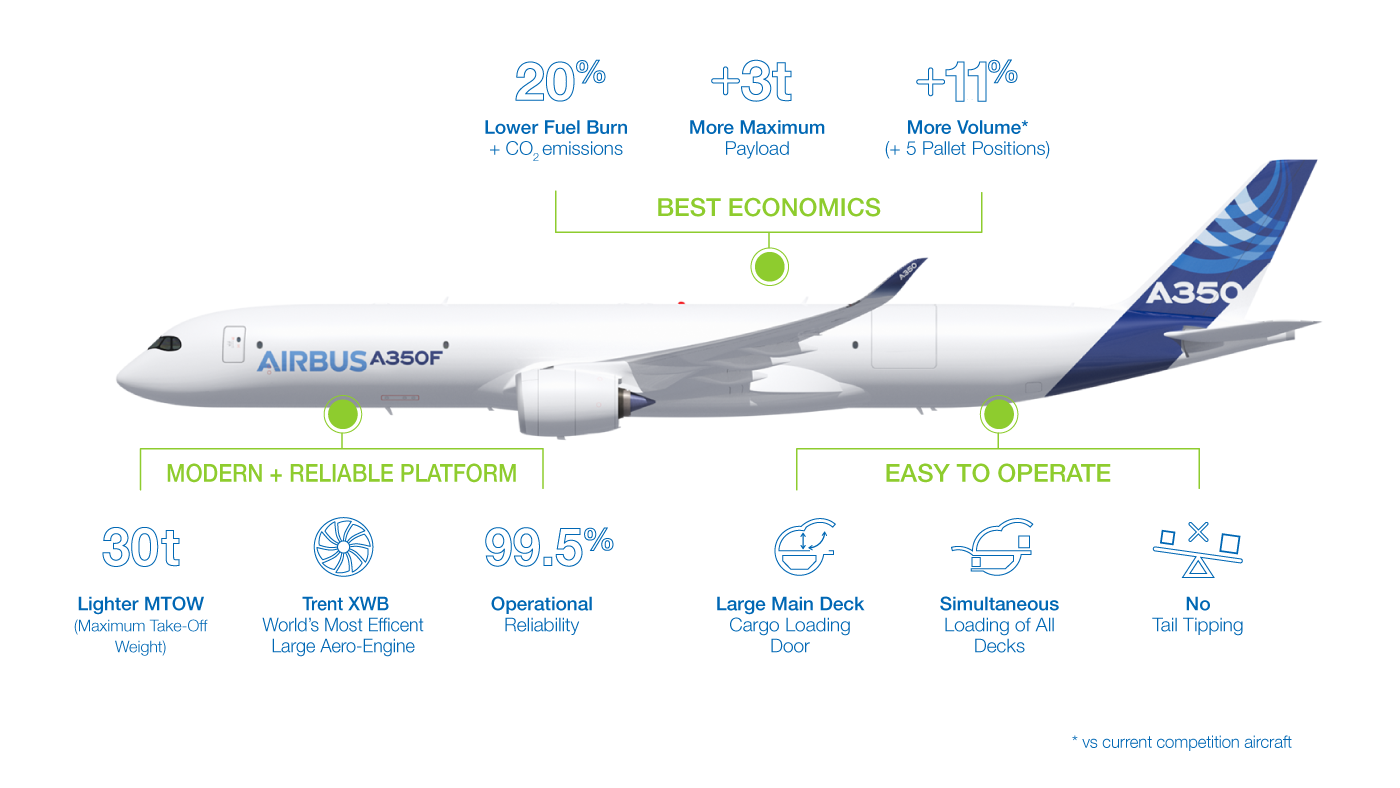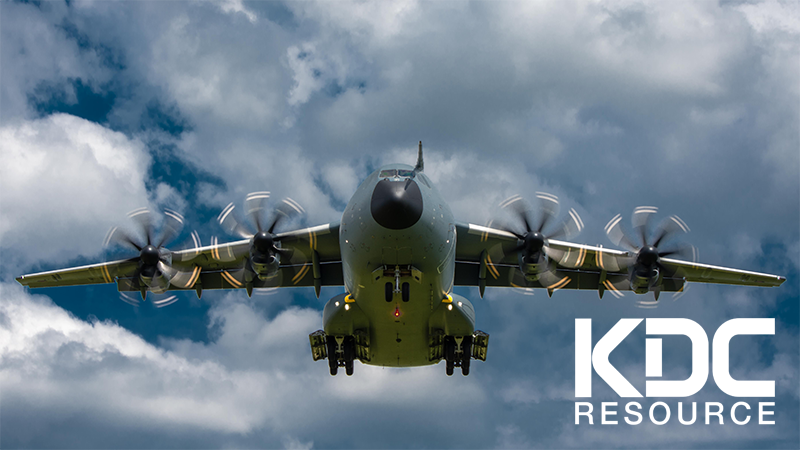

Image Courtesy: Airbus
November saw the introduction of the Airbus A350F in what was the first major aerospace event in the past two years.
Despite the pandemic’s short-term impact on aviation, the air show demonstrated buyer confidence in the sector’s recovery through the number of aircraft ordered.
The Airbus A350F is a freight adaptation of the A350 commercial airliner.
It incorporates the original’s modern components and efficient developments, including the Trent XWB engine.
It is dubbed the world’s most efficient large aircraft engine with 15 per cent lower fuel consumption than the original Trent engine.
The aircraft has 40 per cent lower fuel burn than its direct competitor, which also translates to greater range and lower operating costs.
Part of this comes from it sharing a minimum of 99 per cent commonality with the A350.
The engines share a 100 per cent commonality, meaning easier repairs and maintenance for operators.
Despite minimal changes, the A350F has a high size-to-cargo weight ratio.
It has 11 per cent more volume than its direct competitor, which translates to three tonnes more payload.
Considering its greater fuel efficiency, it has the potential to revolutionise the future of air freight, a fact evidenced in its order volume at the recent air show.

Image Courtesy: Airbus
Efficiency and sustainability are big buzzwords in all industries, particularly in aerospace and logistics.
As a freight aircraft, the A350F is the intersection of two, putting it under arguably greater scrutiny than commercial aircraft.
That said, we pay more attention to passenger aircraft, simply because they dominate the spotlight.
Freight planes are not exactly “cool” or “interesting” in the same way that a passenger flight is.
Granted, commercial flights also make up a much larger percentage of global air traffic, but cargo flights are not insignificant.
Therefore, manufacturers need to focus on more efficient cargo aircraft.
The Airbus 350F is the world’s largest airline manufacturer’s answer to this concern.
The A300 – its current freight model – is the best-selling freight plane of all time.
However, by 2028, it will become legally obsolete thanks to changes in the International Civil Aviation Organization’s emissions laws.
These laws will force the end of production of current, less-efficient aircraft.
So, in the intervening period, there will be some crossover between the A300 and A350F, which is due to launch in 2025.
During this time, it is likely the two models will work alongside each other while companies update their fleets.
But, after 2028, the A350F will be the only large freighter (currently in production) that meets the updated ICAO regulations.

Image Courtesy: Airbus
It will be interesting to see.
Airbus certainly has a competitive history to its advantage, and its ability to demonstrate the 350F to a new audience clearly spurred interest.
Hopefully, it will deliver on time so the fuel-efficient freight revolution can begin.
